Michelle Flesaker, a junior at Smith College, had her manuscript titled “The role of cardiorespiratory fitness on quality of life in midlife women” accepted in the journal Menopause, of the North American Menopause Society. This is an extraordinary achievement for Michelle!
Midlife is a challenge to women due to what is known as the “squeeze” where many women in this age range are working to advance their careers, taking care of children, caring for aging parents, while experiencing the physiological effects of menopause and health declines due to aging. These midlife experiences may impact a woman’s quality of life. Therefore, midlife may be a critical window of opportunity to improve quality of life in women.
Improvements in cardiorespiratory fitness (CRF) or aerobic exercise capacity, is well known to reduce the risk of disease. Michelle was interested in whether CRF was related to the self-reported perception of quality of life (QOL). Healthy women aged 40-65 completed the Utian Quality of Life questionnaire, a treadmill stress test to measure CRF, a self-reported physical activity questionnaire, and more. Michelle determined that CRF was a significant predictor of women’s overall QOL. Michelle’s paper highlights the importance of CRF for midlife women. The results suggest that healthcare practitioners would benefit from targeting CRF as an important health indicator beyond its ability to predict and reduce disease risk.
Join us in congratulating Michelle on her amazing work!
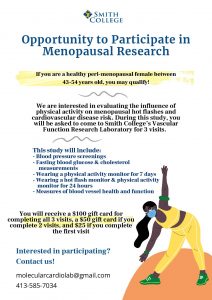
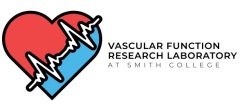
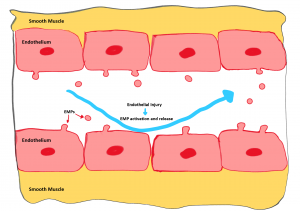
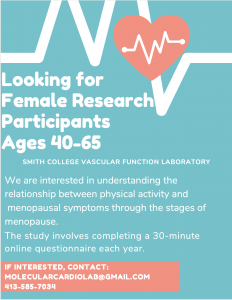
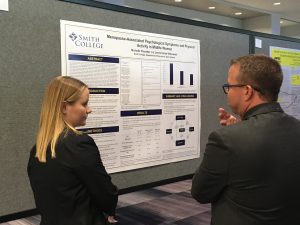 Her analysis of self-reported data revealed that higher levels of physical activity were related to fewer negative psychological and fewer vasomotor symptoms in our population. The preliminary data suggest that habitual physical activity may aid in the management of physiological and psychological symptoms of menopause.
Her analysis of self-reported data revealed that higher levels of physical activity were related to fewer negative psychological and fewer vasomotor symptoms in our population. The preliminary data suggest that habitual physical activity may aid in the management of physiological and psychological symptoms of menopause.